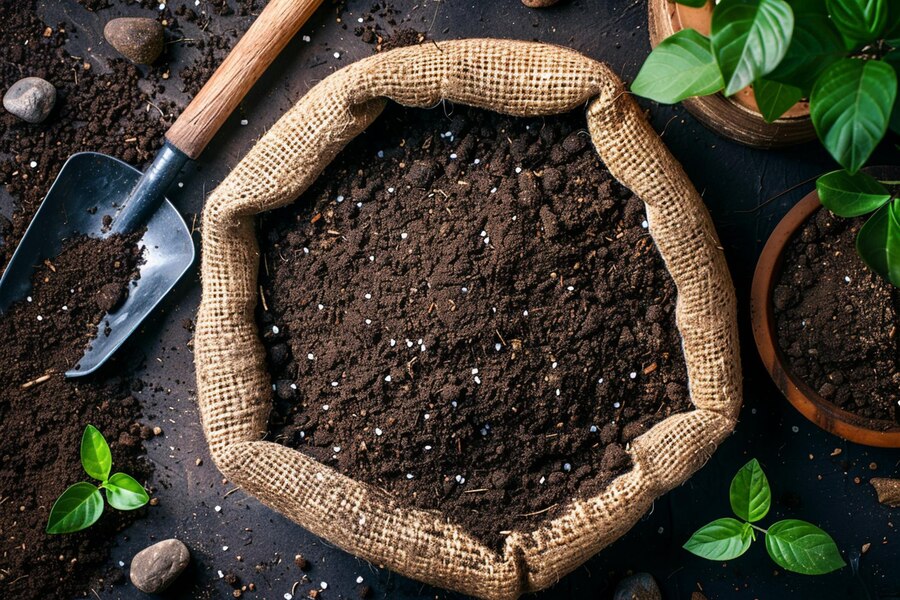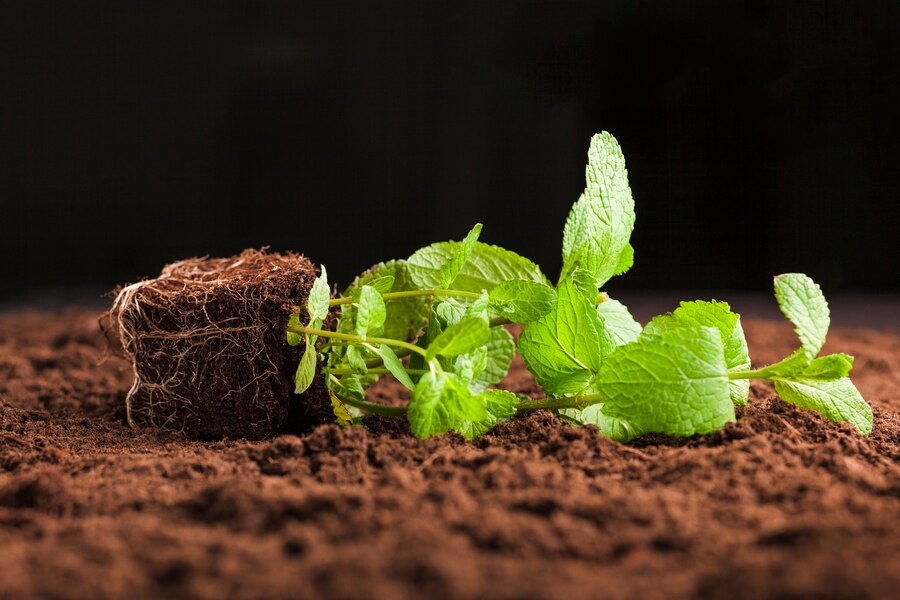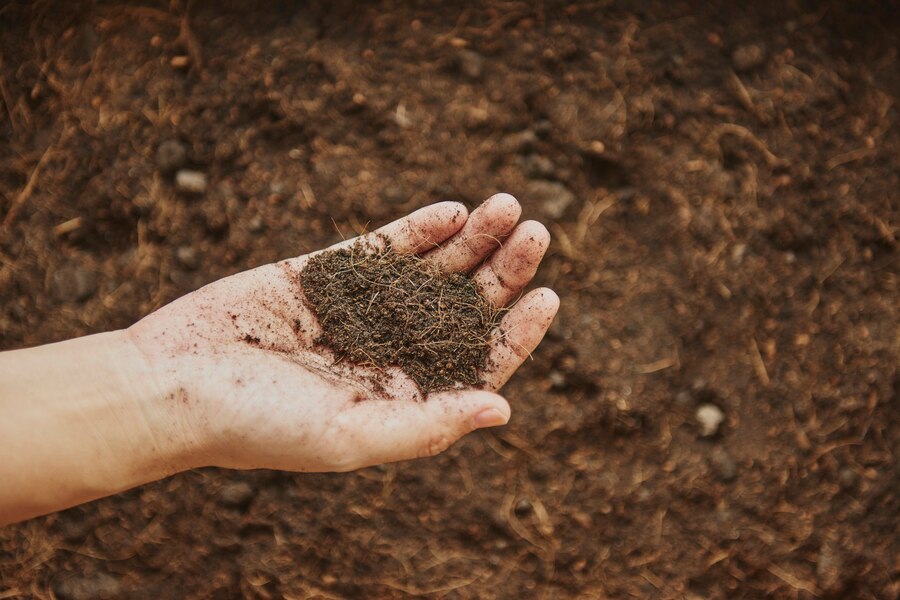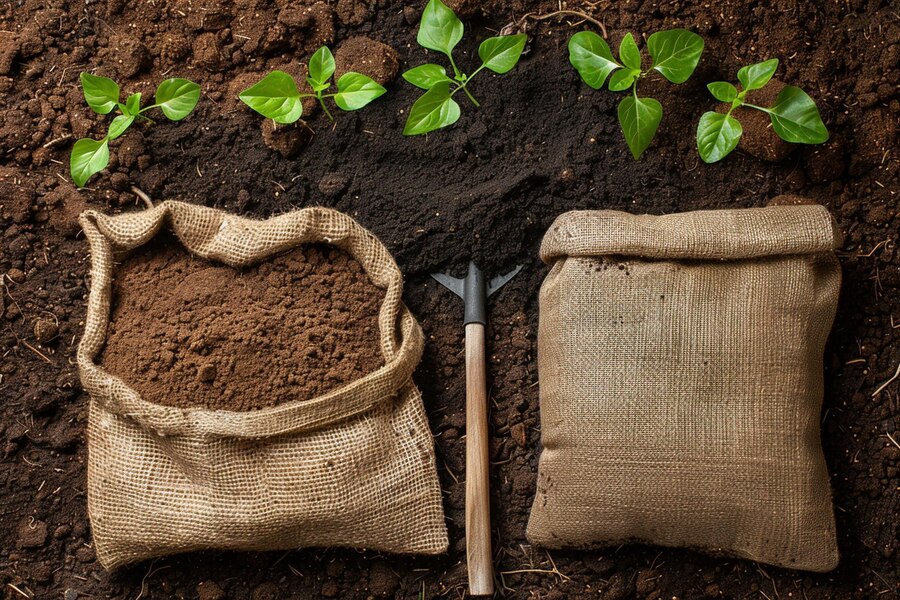More and more homeowners and gardeners have lately turned to environmentally friendly gardening methods. One important habit has become a game-changer: the use of natural fertilizers: growing worries about the environmental impact of synthetic chemicals and the wish to create a more sustainable garden call for this practice. These natural fertilisers for chemically based goods help to preserve our ecosystems in addition to encouraging better soil and plants. Emphasizing their environmental advantages, efficiency, and part of organic farming, this essay will investigate the reasons natural fertilizers are becoming the future of gardening.

The Growing Demand for Eco-Friendly Gardening
Many gardeners are reevaluating the tools they use in their gardens as knowledge of sustainability, pollution, and climate change grows. Although they help plants develop well, traditional synthetic fertilizers may include dangerous chemicals that might seep into the soil and rivers, therefore compromising ecosystems over time. With this in mind, the drive toward environmentally friendly gardening techniques has gathered steam with natural fertilisers at the front stage. Derived from plant, animal, or mineral sources, these fertilisers present a safer, more sustainable substitute for synthetic choices.
What Are Natural Fertilisers?
Made from organic components such compost, manure, bone meal, and fish emulsion, natural fertilisers—sometimes known as organic fertilisers—are Unlike chemically produced synthetic fertilisers, natural fertilisers improve the natural processes of soil, therefore supplying necessary nutrients without damaging the surroundings. Along with trace minerals and helpful microorganisms that enhance soil fertility and condition, these fertilizers include nitrogen, phosphorous, and potassium—as well as They improve the soil over time, therefore encouraging a stronger and more ecologically friendly garden.
The Environmental Benefits of Natural Fertilisers
Natural fertilisers are becoming more and more popular mostly because of their good effect on the surroundings. Although short-term beneficial, synthetic fertilisers can cause greenhouse gas emissions, water contamination, and soil damage. These fertilisers wash off into surrounding water sources when used incorrectly, causing nutrient pollution and algal blooms that damage aquatic life.
By comparison, natural fertilisers are far less likely to produce such problems. Being slow-release, they give plants a consistent supply of nutrients, therefore lowering their danger of nutrient runoff. Many natural fertilizers also include organic matter that helps water retention, soil structure, and soil biodiversity. Healthy, more robust plants resulting from this can better resist pests, diseases, and severe weather. Gardeners that choose natural fertilizers help to create better, healthier surroundings.
Enhancing Soil Health with Natural Fertilisers
Maintaining a thriving garden depends much on the condition of the soil. Beneficial microorganisms including bacteria, fungi, and earthworms abound in healthy soil, which breaks down organic matter and provides nutrients to plants. Conversely, synthetic fertilisers can upset this delicate equilibrium by killing off helpful bacteria and rendering the soil dependent on chemical inputs. This causes a cycle of depletion whereby gardeners have to constantly add fertilisers to keep plant development.
Working in concert with the soil ecosystem, natural fertilizers encourage the growth of helpful species and over time enhance soil structure. For instance, fish emulsion and bone meal supply vital nutrients; compost and manure add organic matter that improves the ground. This increases nutrient availability, therefore improving soil aeration, and promoting the growth of healthy plants. By concentrating on soil health, gardeners can produce a self-sustaining garden more resistant to pests and diseases and need less maintenance.

The Role of Organic Grass Fertilizer
Lawn care is one field where natural fertilisers have experienced notable expansion. Many gardens contain lawns, but keeping a healthy one may be difficult—particularly if synthetic fertilizers are used. Through runoff, these compounds can burn vegetation, compromise soil quality, and add to pollution.
A natural substitute for chemical products, organic lawn fertilizer presents a green fix for these issues. Usually derived from plant-based or animal-based sources, such as alfalfa meal, feather meal, composted manure, and organic grass fertilizers These slow-release nutrients from these fertilizers help to create rich, verdant lawns without running the danger of chemical accumulation. Apart from being better for the surroundings, organic lawn fertilizers can enhance soil quality by including organic matter, so supporting good soil organisms and helping to retain moisture.
Using organic lawn fertilizer also means cutting the usage of dangerous chemicals that can affect adjacent ecosystems. High levels of nitrogen and phosphorous found in conventional lawn fertilisers can wash off into rivers and cause eutrophication, therefore damaging aquatic habitats. Conversely, organic fertilisers are a more sustainable choice for lawn maintenance since they are far less prone to generate these problems.
How Natural Fertilisers Promote Sustainable Gardening
Many gardeners give sustainability a top priority, and natural fertilisers are rather important for sustaining long-term viability. Gardeners can lessen their reliance on petroleum-based products and chemicals, which are often detrimental to the environment, by choosing organic substitutes for synthetic fertilisers. Made from renewable resources, natural fertilizers are a more sustainable choice that closes the gardening cycle. Composting yard waste, manure, and kitchen trash, for instance, produces a nutrient-dense fertilizer that can be applied in the garden, therefore lowering waste and offering priceless resources for the expansion of plants.
Furthermore, natural fertilisers sometimes call for less regular application than synthetic substitutes, thus less constant fertiliser purchases are needed and less waste is produced. Using these products can help gardeners produce a more self-sustaining, resilient garden with less environmental impact and fewer inputs needed. This sustainability emphasis helps the garden as well as promotes a more environmentally friendly method of food production and gardening.
The Future of Natural Fertilisers in Gardening
Demand for environmentally friendly goods is projected to keep increasing as more people understand the advantages of natural fertilizers. Growing interest in organic gardening along with growing awareness of environmental problems have produced a market fit for environmentally friendly gardening products. This trend is probably going to inspire more creativity in the creation of natural fertilizers, therefore increasing their availability, efficiency, and cost for all kinds of gardeners.
Natural fertilizers’ future also emphasizes local, sustainable manufacture more and more. Many natural fertilizers are made from locally obtained materials, therefore lowering the carbon footprint of these goods and shipping expenses. Natural fertilisers will probably become the standard instead of the exception as the gardening world keeps embracing environmentally friendly methods.

Conclusion: A Greener Future for Gardening
Offering a cleaner, more sustainable substitute for synthetic chemicals, natural fertilizers reflect the direction of gardening going forward. These environmentally friendly products enable gardeners to create better, more resilient gardens by enhancing soil health, lowering environmental pollution, and supporting sustainable practices. Organic grass fertilizer and other natural substitutes are becoming more and more popular in reflection of the larger movement in gardening toward sustainability. We may expect a cleaner, healthier future for our gardens and the earth overall as more gardeners choose natural fertilizers.
